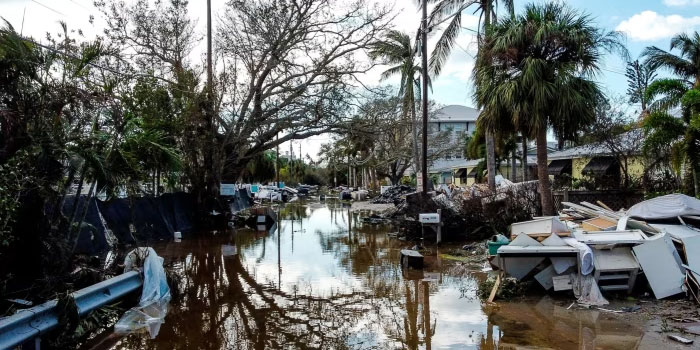TRENTON – As rescue and emergency operations deliver critical aid to the victims of deadly back-to-back hurricanes that swept across the southeastern United States, Attorney General Matthew J. Platkin and the Division of Consumer Affairs are reminding New Jerseyans to beware of fraudulent charitable solicitations when seeking to donate to relief efforts.
They urge consumers to “Investigate Before You Donate” to avoid falling victim to fraudulent solicitations for donations to aid victims of the destruction caused by the hurricanes and related tornadoes, fires, and flooding.
“The enormity of the devastation caused by Hurricane Helene and Hurricane Milton is heartbreaking and for those of us viewing from afar, donating to relief efforts is a way to show our support for those suffering overwhelming losses,” said Attorney General Platkin. “Unfortunately, scammers and con artists see these tragic events as an opportunity to exploit our generosity and good will for their own benefit. We’re urging New Jersey to be wary of charity scams that divert relief funds into the pockets of fraudsters.”
“As with any tragedy or natural disaster, New Jerseyans eager to assist those impacted by Hurricane Helene and Hurricane Milton should seek out reputable charities,” said Cari Fais, Acting Director of the Division of Consumer Affairs. “Before contributing money, gift cards, or items to any relief effort, residents should always take the necessary steps to ensure their donation is actually going to help those in need.”
The Division offers the following tips to ensure your donation counts:
- Give to charities you know and trust. Never give to a charity you know nothing about. If a charity is new, that doesn’t necessarily mean you shouldn’t donate—but learn as much as possible before you decide to entrust the organization with your money.
- Learn about the charity’s stated mission, and find out how, exactly, it plans to use your money. Ask for literature and read it. Honest charities encourage you to ask questions.
- Contact Consumer Affairs’ Charities Hotline at 973-504-6215or visit the Search For A Charity page to learn about specific charities and confirm that they are registered with the Division, as required by law.
- The Division’s website will also show the charity’s most recently reviewed financial information—including the amount of the charity’s annual expenses that went to actual charitable programs, as opposed to fundraising or management expenses.
- Don’t be fooled by a convincing name or professional-looking website. Dishonest charities may use impressive names or names that closely resemble those of respected, legitimate organizations.
- Don’t succumb to pressure. Don’t let yourself be pressured into giving, and don’t feel you have to contribute on the spot. No legitimate organization will expect you to contribute immediately, even if you have given in the past.
- Ask if the charity uses a professional fundraiser and, if so, what percentage of your contribution will actually go toward relief efforts and how much will be used to pay the fundraiser.
- Beware of unsolicited and phony email notices that claim to be from a charity asking for your credit card information. This scam is called “phishing” and could be used by thieves to commit identity theft. If the charity is unfamiliar to you, check whether the group is registered with Consumer Affairs’ Charities Section. If the organization is registered or you know the organization, call directly to find out if the email notice is valid.

